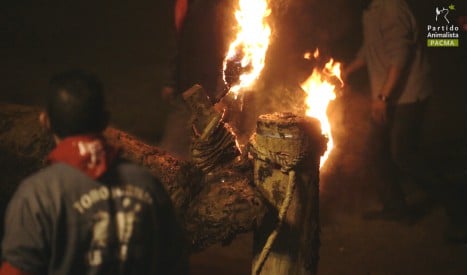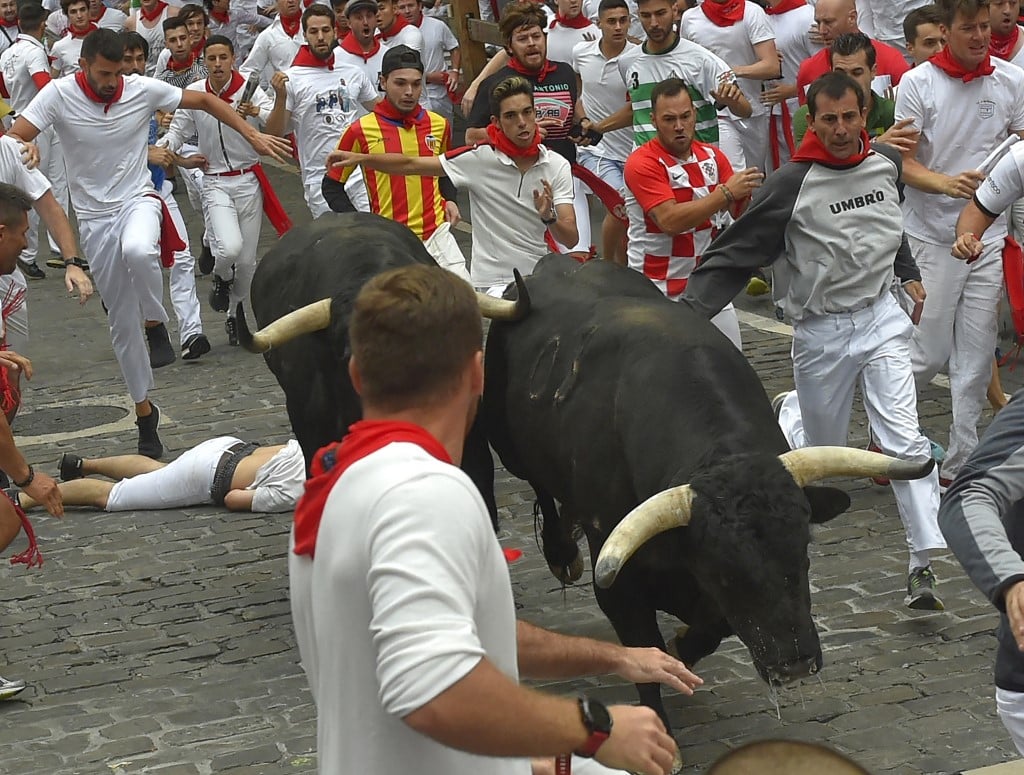Pacma, the Spanish political party calling for animal rights, said the bull suffered an “excruciating 13 minutes of torture” as the dried mud caught fire while the animal writhed and bucked in a desperate panic to dislodge fireworks from its horns.
The shocking footage was taken at the “Toro Jubilo”, a tradition awarded special cultural protection by the Spanish government.
Campaigners are calling for “barbaric practice” to be banned. The fiesta took place in Medinaceli, a town near Soria in Spain’s Castilla y Leon region.
Organisers limit numbers to the spectacle and only provide access to those with tickets in a bit to prevent protests from animal rights campaigners.
But Pacma members managed to sneak past security guards and police to film the event on Saturday night.
A pesar de las restricciones, hemos documentado el cruel infierno de Mancheguito, el #ToroJúbilo de #Medinaceli. https://t.co/AXbUs9rdb5
— PACMA (@PartidoPACMA) November 13, 2016
“Organisers decided to only allow access to people with invitations so even journalists were banned,” said a spokesman from Pacma.
“But we still managed to get through and record the shocking scenes.”
WATCH: Pacma filmed the Toro Jubilo fiesta in Medinaceli.
They released the video that shows a bull named Mancheguito trying desperately to dislodge the fireworks from its horns as onlookers shout and jeers.
“The animal would probably have been blinded because of the fire burning its cornea as well as being injured because of its continuous head shaking as it tried to get the wood loose,” said a statement.
Earlier this year the regional government of Castilla y Leon outlawed the killing of bulls in traditional festivals which was hailed as a partial victory for animal rights campaigners.
But the Toro Jubilo tradition is exempt under the ban because the bull is taken away to be killed in a slaughterhouse rather than in public view.
The decree does however put an end to the Toro de la Vega, a controversial festival that took place in the town of Tordisillas and saw crowds on foot and on horseback chase a bull and stab it with lances until it died.



 Please whitelist us to continue reading.
Please whitelist us to continue reading.
Member comments